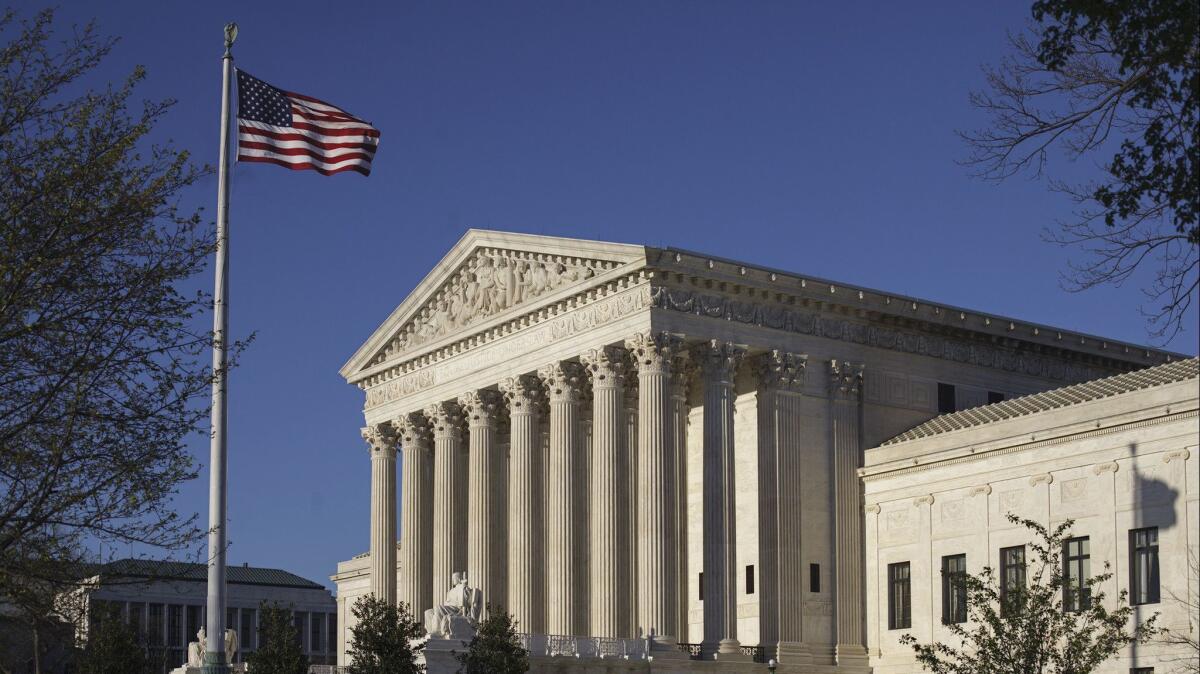Sometimes, you can be tried twice for the same crime, Supreme Court rules

The Constitution is commonly said to protect Americans from double jeopardy — that is, being tried twice for the same crime.
But the Supreme Court on Monday reaffirmed its view that this promise comes with a major exception. The court ruled that, because a state and the federal government are separate “sovereigns,” each is free to prosecute a violation of one of its laws, even if they overlap.
The 7-2 decision preserved a rule that allowed federal prosecutors to bring criminal civil rights charges against two Los Angeles police officers who had been acquitted by a state jury in Simi Valley for the beating of motorist Rodney King. These dual prosecutions were also crucial during the civil rights era when federal prosecutors intervened in criminal cases in Southern states.
When the case was argued in December, most of the justices said they were reluctant to overturn the long-standing precedent.
At issue is a clause in the 5th Amendment that says, “Nor shall any person be subject for the same offense to be twice put in jeopardy of life or limb.”
Terance Gamble was arrested and prosecuted in Mobile, Ala., for having a loaded handgun in his car. Because he had a previous conviction for robbery, he was charged under a state law for having a gun after being convicted of a “crime of violence.” Federal prosecutors then filed a second charge against him seeking a longer prison term because he was a felon in possession of a weapon.
Gamble appealed the double conviction but lost. “We have long held that a crime under one sovereign’s law is not ‘the same offence’ as a crime under the laws of another sovereign,” said Justice Samuel A. Alito Jr., speaking for the court in Gamble vs. United States. He said the two offenses were usually not the same. For example, federal prosecutors may be acting to protect civil rights while state authorities may bring a traditional murder or assault prosecution.
He also cited the example of foreign prosecutions. “Imagine, for example, that a U.S. national has been murdered in another country,” he said. American prosecutors would gladly try the perpetrator of such a crime, even if he had been acquitted by a local court.
Justices Ruth Bader Ginsburg and Neil M. Gorsuch filed separate dissents. Ginsburg said she would scrap the “misguided doctrine” of “separate sovereigns” and hold that “Double Jeopardy Clause bars successive prosecutions for the same offense.”
“A free society does not allow its government to try the same individual for the same crime until it’s happy with the result,” Gorsuch wrote in the opening line of a 25-page dissent. “Enforcing the Constitution always bears its costs. But when the people adopted the Constitution and its Bill of Rights, they thought the liberties promised there were worth the cost. It is not for this court to reassess this judgment to make the prosecutor’s job easier.”
More stories from David G. Savage »
More to Read
Get the L.A. Times Politics newsletter
Deeply reported insights into legislation, politics and policy from Sacramento, Washington and beyond. In your inbox three times per week.
You may occasionally receive promotional content from the Los Angeles Times.







